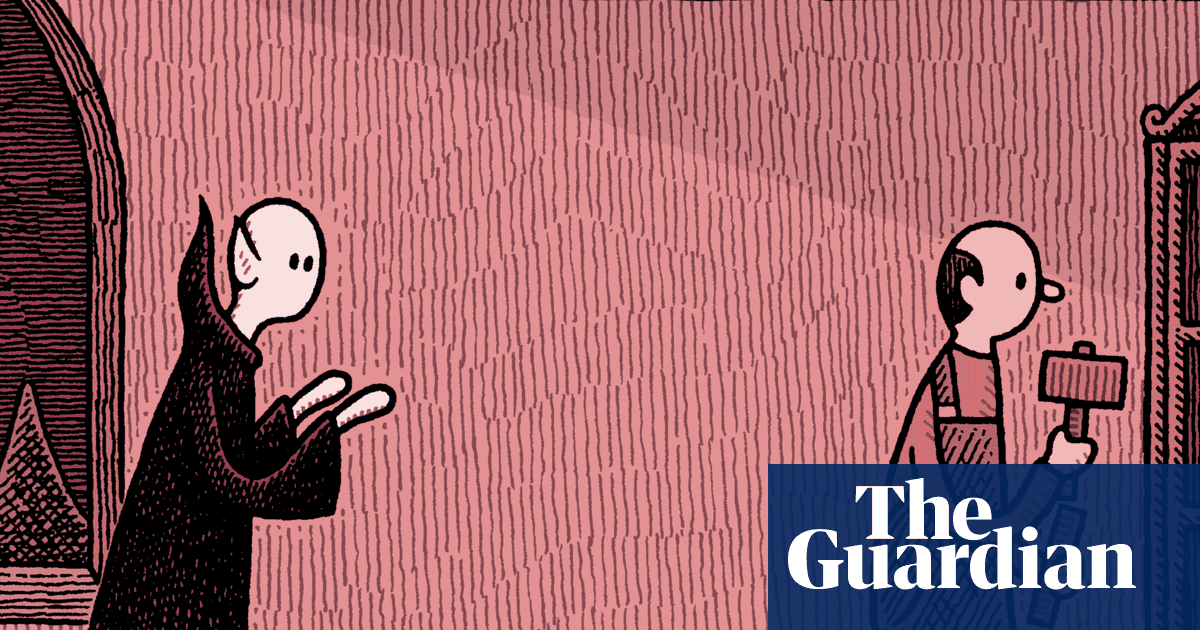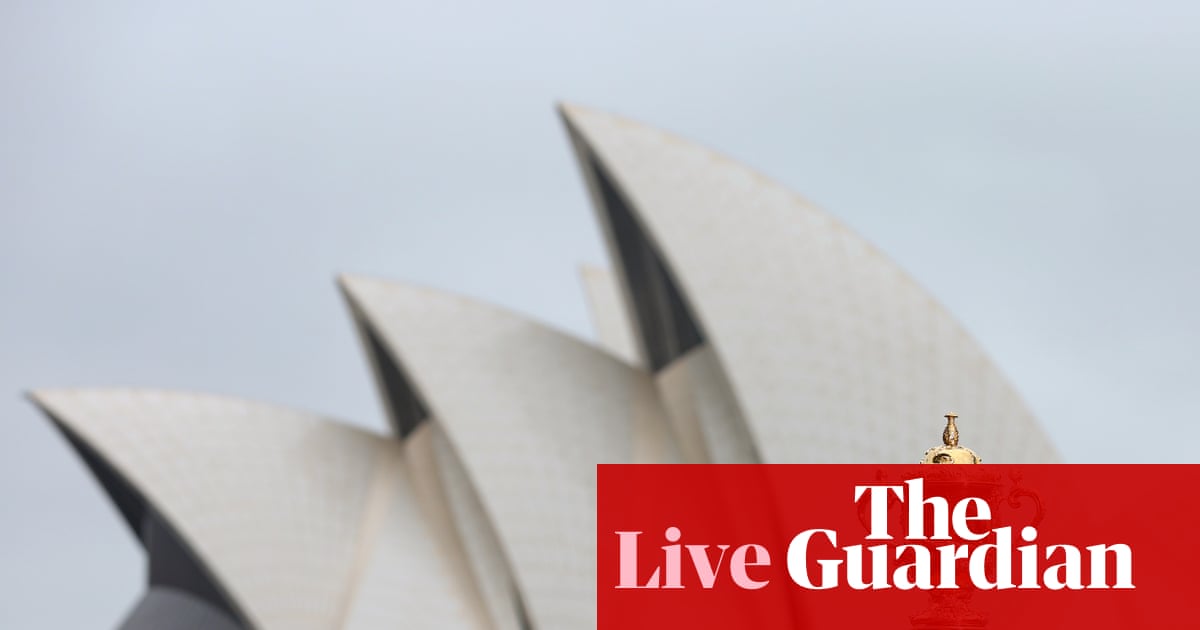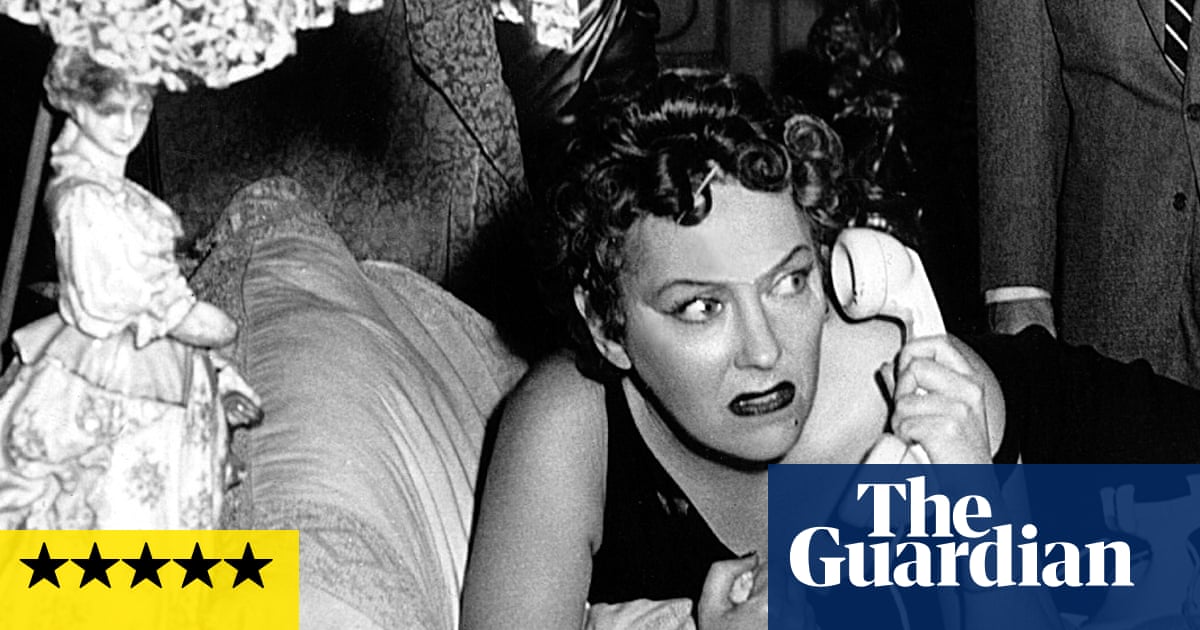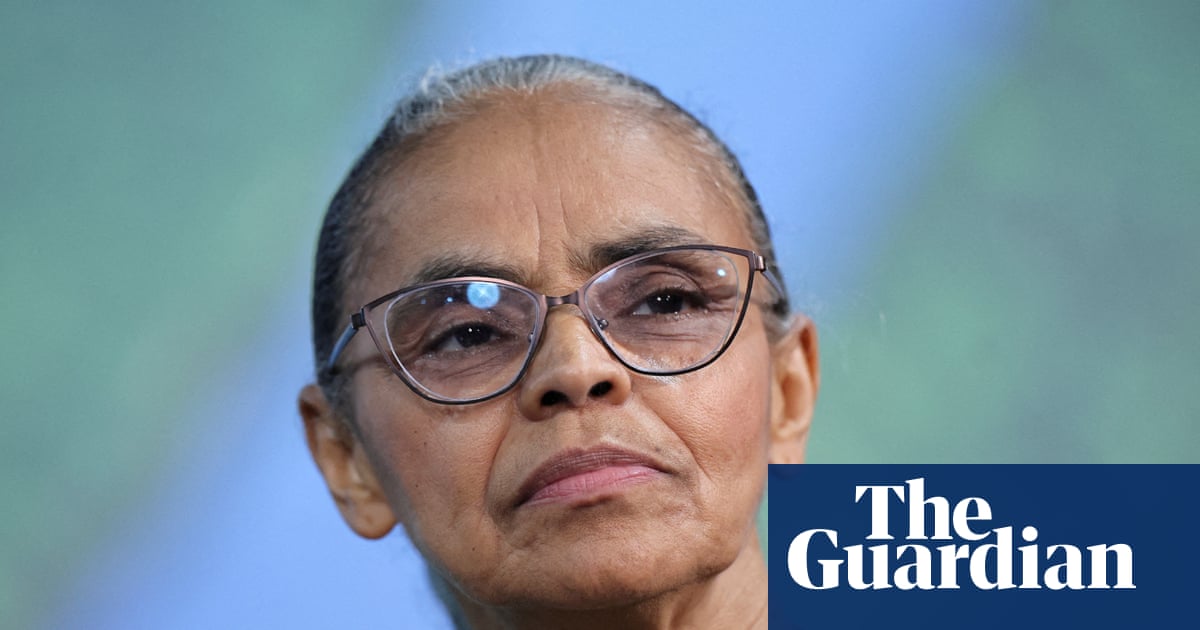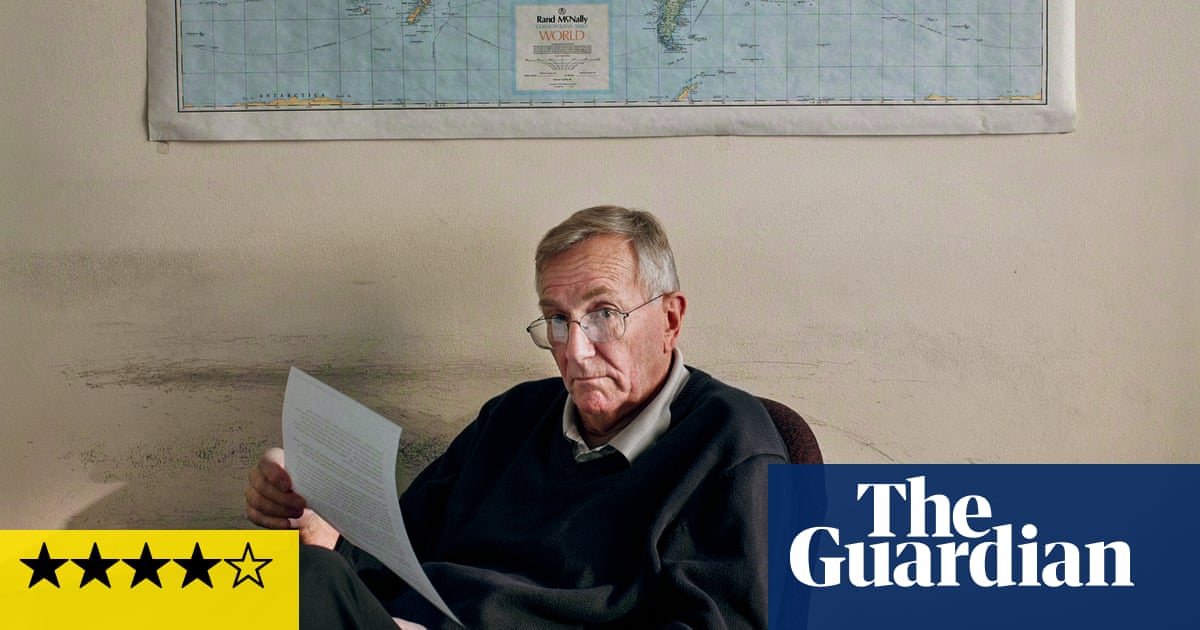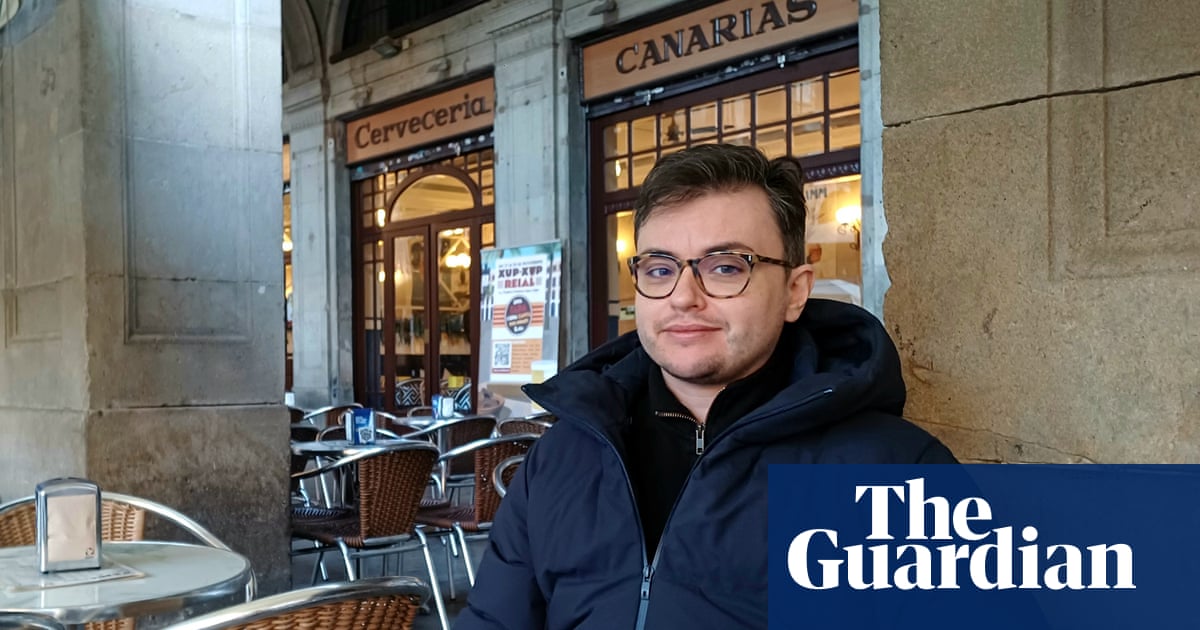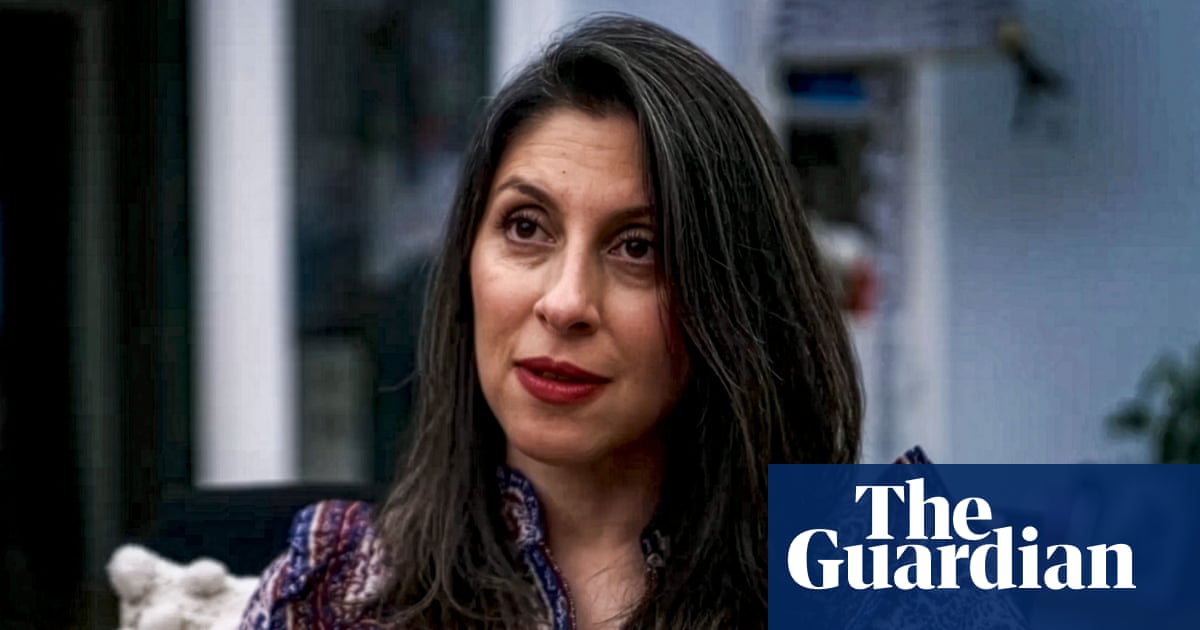On a recent Saturday night in downtown Manhattan, a sold-out crowd at the Cherry Lane Theatre delighted in one of the most bizarre sights in recent New York stage memory: comedian Natalie Palamides, dressed as if in split screen – her left side bedecked in Y2K girl signifiers (butterfly clips, low-rise jeans), her right in bro clothes (cargo pants, flannel) – barreling across the stage and tangling with … herself. In her one-woman show Weer, the Los Angeles-based clown plays two halves of a toxic relationship over three late-90s years, flipping between perspectives with the velocity of a spinning top.
The show is difficult to describe and perhaps more difficult to market, as well as gloriously unhinged and riotously funny – a bold gambit for a performer, as well as for the new Cherry Lane, the West Village staple recently renovated and reopened by A24. The film distribution company turned production studio turned cultural lodestar purchased the historic theater, billed as the “birthplace of Off-Broadway”, for $10m in 2023, as part of its expansion beyond the cultish, acclaimed arthouse films – Moonlight, Hereditary, Everything Everywhere All at Once, to name a few – that built their hip reputation for the cool and cutting edge. (Or, as some would argue, a certain loose but identifiable aesthetic – neon-drenched palette, buzzy cast, faces that have seen an iPhone – and provocative bent.) Following an interior overhaul – including new lighting and sound systems, redone upholstery, a screen and curtains for “cinema mode” and a restaurant (Wild Cherry) from hot Manhattan restaurant group Frenchette – Cherry Lane is reopened for business and aiming to attract high-minded, zeitgeist-oriented New Yorkers, whether or not they own an A24 hat.
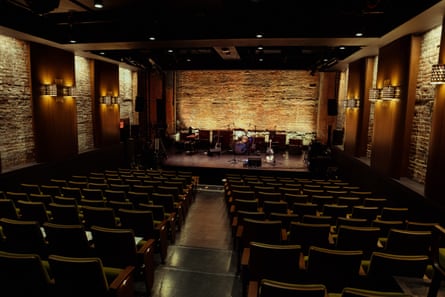
“We want to become a live destination where anyone can stop by on any given night and see something engaging and interesting,” said Dani Rait, Cherry Lane’s programming director. Rait’s vision for Cherry Lane is partly informed by a decade of booking talent and musical guests for Saturday Night Live, scanning for the au courant and adaptable. “We want to capture the culture of the moment and be all-encompassing,” spanning film screening, musical performance, conversations, live theater and more for “an overarching body of work” in New York. After a soft opening this summer that included acoustic shows by Haim and stand-up gigs by Ramy Youssef and Alex Edelman, Cherry Lane officially opened in September with a lineup of events indicating the space’s flexibility and limited-edition appeal: a live reading of True West by Michael Shannon; a screening of 25th Hour and Q&A with Spike Lee; a night of comedy with Jerrod Carmichael; a Sunday film series hosted by Sofia Coppola.
And Weer, which became the new Cherry Lane’s first long-term booking after Rait caught a performance at last year’s Edinburgh fringe festival. With diabolical physical gags and a thrilling mix of belly laughs and pathos, the show builds on A24’s longstanding reputation for trusting the market appeal of challenging work, as well as for anointing emerging artists. (See: Aftersun, Lady Bird, Eighth Grade and Midsommar.) Palamides is “the most fearless performer I’ve ever seen”, said Rait. “You can’t experience Weer in any other medium besides the live space. It really is setting the tone for the type of work we want to do here.”
Intimate, strange and tightly contained, it also plays in contrast to the sprawl of A24, which has rapidly ballooned from indie kingmaker to all-encompassing brand. In recent years, the company, founded in 2012 as an arthouse distributor, has widened its ambition from producing and marketing taste-making films to all-encompassing world – A24 as a signifier of something adult-oriented, polished, discerning. It moved into television, formed a membership program, backed a beauty brand, sold merch, and partnered with a talent management company.
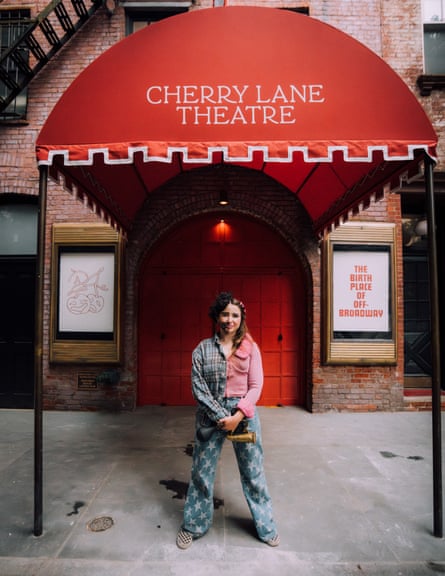
The infusion of more private equity capital – Jared Kushner’s Thrive Capital led its latest seed round for a valuation of $3.5bn, a 40% increase over its prior funding in 2022 – brought a mandate for more growth, reflected in a slate of commercially ambitious films with increasingly lavish budgets and mixed reviews. Some bets have paid off, such as Alex Garland’s Civil War ($127.3m box office last year, on $50m budget) and the Celine Song’s Materialists ($103m haul this summer, on a $20m budget). Others, such as Ari Aster’s Eddington and Death of a Unicorn, have struggled to connect with audiences. Earlier this month, The Smashing Machine, a wrestling epic from Benny Safdie starring Dwayne “The Rock” Johnson, bombed spectacularly, with just over $5m on opening weekend, the lowest haul of Johnson’s career. (It did have the misfortune of going up against Taylor Swift’s The Life of a Showgirl “movie.”) In December, the company will premiere Josh Safdie’s Marty Supreme, reportedly A24’s most expensive movie yet with a budget of around $70m.
Cherry Lane, with a staff of 30 and 167-seat capacity, represents a nimbler corner of a company, in touch with its experimental roots and able to pivot according to audience demand and interest. Programming will be ad hoc and regular-ish; Weer remains its only long-term booking. The company is not requiring performers or material to have any tie to A24, nor are there any plans to develop original theater. But both remain a possibility. “We want to use this as a launchpad for emerging voices and talent that maybe don’t have a TV show yet or a film deal yet but have a story to tell,” said Rait. “We just want to give them a stage to tell it on.”
The redesign of Cherry Lane, and A24’s move into live events, comes during a period of significant commercial investment in off-Broadway theaters long run by non-profits, as well as concern over the accessibility of theater in New York. Amazon subsidiary Audible has partnered with the Minetta Lane Theatre since 2018; the Greenwich Village playhouse became the launchpad for Together, a collective effort by Hugh Jackman, super-producer Sonia Friedman and director Ian Rickson to counteract Broadway’s ballooning ticket prices with intimate, affordable theater. (A quarter of tickets at its two initial shows were comped to various community groups, and another quarter sold at the box office for $35). The Cherry Lane Theater is now a for-profit entity, though A24 is preserving some of its non-profit programs, including one for playwright mentoring. Though it has no set policy for ticket prices yet, Rait said the theater is “always thinking about accessibility with tickets. It’s really important to us to keep prices low enough for all different types of people to come see our shows.” (For each performance, Weer has a dedicated allotment of rush tickets sold an hour before showtime for $24 each.)
The emphasis on the buzzy and the boundary-pushing seems to be working – this week, after a sold-out run, Cherry Lane announced a second extension for Weer through 21 December. Word of mouth has been strong, in line with the theater’s goal to be, as Rait put it, a “reflection of what culture is talking about today” in a physical space. “This intimate setting, with a bunch of people trying to have fun, is the best way to experience Weer,” said Rait. “And that really is what we’re trying to build here – once in a lifetime opportunities to come see something in the flesh.”

.png) 1 month ago
39
1 month ago
39
